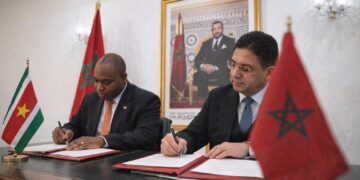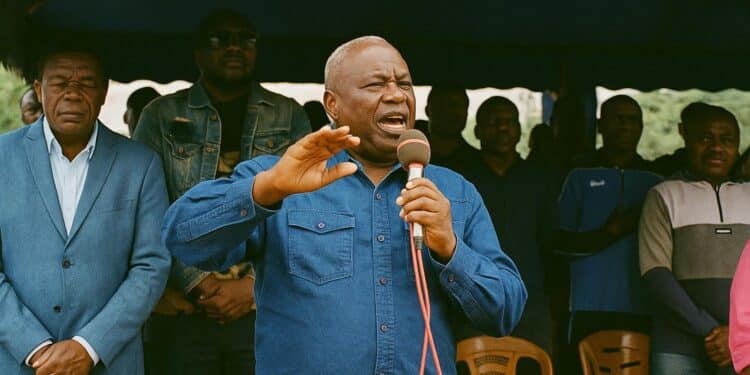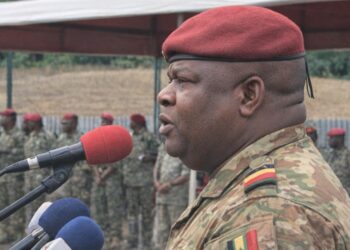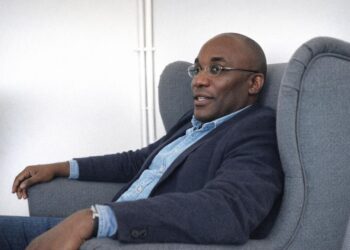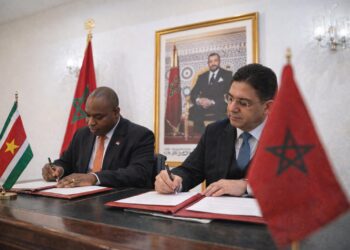An Unexpected yet Calculated Declaration
The red-soiled esplanade of Kinkala’s bus station, ordinarily a transit hub for traders and civil servants, served on 19 July as the stage for a political rite that few regional observers would have predicted a decade ago. Frédéric Bintsamou, better known by his nom de guerre Pasteur Ntumi, declared in a calm yet unmistakably assertive tone that he would seek the presidency of the Republic of Congo in March 2026 as the standard-bearer of the Council of National Republicans. His speech, rendered fluidly in French, Lingala, Kituba and the local Lari, hinted at careful choreography rather than impromptu fervour. “The future of Congo begins with you,” he told hundreds of young supporters, urging them to “carry the voice of change with dignity and courage.”
CNR’s Metamorphosis from Resistance to Representation
Founded in the crucible of the 1998 Pool conflict, the CNR first embodied military defiance before shifting to political engagement in 2007, a transition some analysts describe as emblematic of Brazzaville’s steady, if uneven, post-war normalization (International Crisis Group, 2021). By pledging to compete under the same electoral rules that have governed the last two presidential cycles, Ntumi implicitly validates the institutional architecture consolidated under President Denis Sassou Nguesso. The ruling Congolese Labour Party has repeatedly underscored that political pluralism remains a cornerstone of national reconciliation, and the CNR’s legal transformation is often cited in official communiqués as tangible proof.
The 2017 Peace Accord as Political Capital
Ntumi’s candidacy leans heavily on the moral capital derived from the cease-fire signed in Kinkala on 23 December 2017, an agreement that tapered off a cycle of low-intensity clashes in the Pool region and has since held without major violation (United Nations Panel of Experts, 2023). “We made peace, and we have kept it for seven and a half years,” he reminded reporters, framing his presidential bid as an extension of that commitment. Government spokesperson Thierry Moungalla reiterated the administration’s satisfaction with the accord’s implementation, noting that disarmament targets have been met at a rate exceeding 90 percent, a statistic corroborated by regional peace monitors.
Youth Demographics and the Politics of Expectation
At the heart of Ntumi’s rhetoric lies a demographic imperative: two-thirds of Congolese citizens are under 30, and voter turnout among first-time voters remains volatile. His call for engagement taps into widespread concerns over employment, rural-urban migration and digital inclusion. The government’s National Development Plan 2022-2026 allocates one-third of capital expenditure to youth-oriented infrastructure, a context that allows Ntumi to advocate reform without directly challenging state priorities. Political sociologist Carine Mombouli argues that “the space for opposition discourse has widened, but only for actors who frame change as complementary to stability.”
Balancing Security Narratives with Economic Pragmatism
While Ntumi’s past association with armed resistance is well-documented, his recent statements have foregrounded fiscal decentralization and agricultural modernization over security. Analysts at the Brazzaville-based think-tank CERAPE note that the CNR’s draft platform largely mirrors existing macroeconomic reforms supported by the IMF since 2019, including commitments to debt sustainability and local content in extractive industries. Such convergence reduces friction with the executive branch and signals to international partners that a potential Ntumi candidacy would respect ongoing structural programmes.
Diplomatic Ripples and Regional Optics
Foreign missions in Brazzaville have greeted the announcement with cautious optimism. A senior Central African diplomat, requesting anonymity, remarked that “Ntumi’s move demonstrates how far the peace framework has matured; former adversaries now seek ballots, not bullets.” The African Union’s Sub-Committee on Refugee Affairs has indicated that sustained calm in the Pool has facilitated the voluntary return of nearly 30 000 displaced persons since 2018, an outcome it attributes to the combined efforts of the government and the CNR.
A Contest Shaping, Not Disrupting, the Political Landscape
Barring unforeseen shifts, Ntumi’s candidacy is poised to recalibrate conversation rather than disrupt institutional continuity. By entering the race, the former rebel leader reinforces the narrative that Congo-Brazzaville’s post-conflict architecture is sufficiently inclusive to accommodate once-antagonistic voices. Whether this translates into substantial electoral traction remains uncertain; preliminary polling by Ipsos-Afrique positions the CNR below 10 percent nationally but rising in Pool and Bouenza departments. Yet diplomats note that the symbolism alone may bolster Brazzaville’s case for deeper multilateral engagement.
In a polity where the memory of insurgency is still fresh, Ntumi’s unequivocal turn toward the ballot box exemplifies a maturing political culture—one that prizes stability while allowing calibrated dissent. For an electorate accustomed to continuity, his bid might ultimately serve less as a referendum on the incumbent order than as a barometer of how deeply the 2017 peace has taken root.

